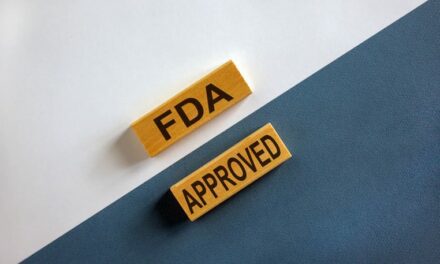Newly published research from Vanderbilt University’s Peabody College and the Christopher & Dana Reeve Foundation highlights the perspectives of the paralysis community on COVID-19 boosters. Among the key findings is evidence that individuals living with paralysis have specific safety concerns that should be addressed through important doctor-patient communication – especially as the nation considers recommending yearly booster shots.
This research builds on recent findings exploring the paralysis community’s views on COVID-19 vaccines, published in November 2021. Published in Rehabilitation Psychology, the findings show important differences in the perspectives of individuals with and without paralysis regarding safety and government transparency related to COVID-19 vaccine boosters.
Between December 2021 – January 2022, the Reeve Foundation distributed a survey to the paralysis community via email. The survey, which included 44 questions, was aimed at learning about how informed the paralysis community is about the boosters, hesitancies about the boosters, and vaccination and booster rates. 774 individuals completed the survey: 470 survey respondents were persons with a disability (PWD; 377 of whom identified as a person with paralysis and 93 with another disability), and 304 individuals were family members/caregivers of a person with paralysis (PWP), friends of PWP, healthcare professionals, and supporters of the Reeve Foundation, grouped into the Foundation Supporters group (FS group).
Most PWD respondents (86.3%) reported that they did not have safety concerns related to the vaccine boosters, and 61.3% of PWD had already spoken to a medical provider about the boosters. PWD were significantly more likely than members of the FS group to have spoken to a provider about the boosters. Some PWD’s safety concerns were similar to hesitations of individuals without disabilities, including distrust of the government and/or pharmaceutical companies, belief that the boosters are unnecessary, and concern about booster side effects. PWP expressed unique concerns related to paralysis or other neurological symptoms, and believed that the booster would affect their paralysis.
The survey results also showed that persons with paralysis and/or other disabilities were significantly less likely than individuals without paralysis to agree that they felt well-informed about COVID-19 vaccine boosters, that the boosters were safe, and that their state and federal governments provide transparent information about the boosters.
“The results from our study show that while individuals with paralysis do share many concerns about the boosters with individuals without paralysis, there are some concerns unique to individuals living with paralysis that affect their perceptions of the booster and their decision to receive a booster,” said Claire Burdick, Senior Research Analyst at Vanderbilt and co-author of the study.
“The unique experiences and perspectives of individuals with paralysis need to be a central part of conversations with healthcare professionals, especially rehabilitation psychologists and physiatrists, in order to make sure that all of their needs, whether related to paralysis or not, are met. Due to the constant emergence of new variants and questions about boosters, it is important that medical professionals engage with their patients to provide accurate information that is targeted specifically towards the disability community,” Burdick added.
Key findings of the study included:
- Most individuals with paralysis or other disabilities (77.3%) were fully vaccinated. In February 2021, just 15.5% of PWP were fully vaccinated.
- Most PWP respondents (74.1%) had already received a booster shot.
- Most PWP who had family caregivers reported that their caregivers were fully vaccinated (87.3%), and of these caregivers, 80.3% had received a booster. In February 2021, most family caregivers (59.8%) had not yet received any doses of a COVID vaccine.
- There were no significant differences in whether or not PWP vs. FS had already gotten a booster shot, but of those who hadn’t, PWP were significantly less likely to plan to receive one. Of the PWP who had not yet received a booster, 37.9% planned to, while 60% of individuals without paralysis who hadn’t yet gotten a booster planned to get one.
- Open-ended responses showed that although PWP and FS had many similar concerns about the boosters (worry about side effects, rapid development, do not think the boosters are necessary), and although shared by both groups, distrust was expressed more commonly among PWP than FS. There were some concerns expressed exclusively by PWP, including concern about paralysis or other neurological symptoms, waiting to see how the booster affects others, and unknown vaccine content.
“We were happy to see that vaccination rates have greatly improved since our initial study in February 2021, and that fully-vaccinated members of the paralysis community are receiving boosters ahead of the national average of fully-vaccinated Americans. It was interesting to see that there were differences between groups related to feeling informed about the boosters, perceptions of safety, and information from government sources that we didn’t see in our first survey. It’s possible that individuals with disabilities distrust the government and the information provided due to the length of the pandemic and confusing and inconsistent guidance from government agencies,” said Burdick.
Due to an inability to social distance due to caregiver assistance or medical needs, many individuals in the paralysis community reported high levels of stress and anxiety about contracting COVID-19 or exhibiting more severe symptoms. At a time when vaccines and COVID-19 boosters are widely available in the United States, it is promising that most individuals with paralysis reported receiving vaccinations and boosters. The results from this study show that there are important differences between the perspectives of PWP and the general population that must be considered in order to ensure that the paralysis community is treated equitably in public health efforts.
“Conducting research and surveys on COVID-19 with our trusted partners at Vanderbilt University helps spread awareness and gain key insight for the community we serve,” said Regina Blye, Chief Program and Policy Officer, Reeve Foundation. “These results are helping paint a clearer picture of the specific effects of COVID-19 on the disability community, and we will continue to advocate and amplify their voices.”
[Source(s): Christopher & Dana Reeve Foundation, PR Newswire]





